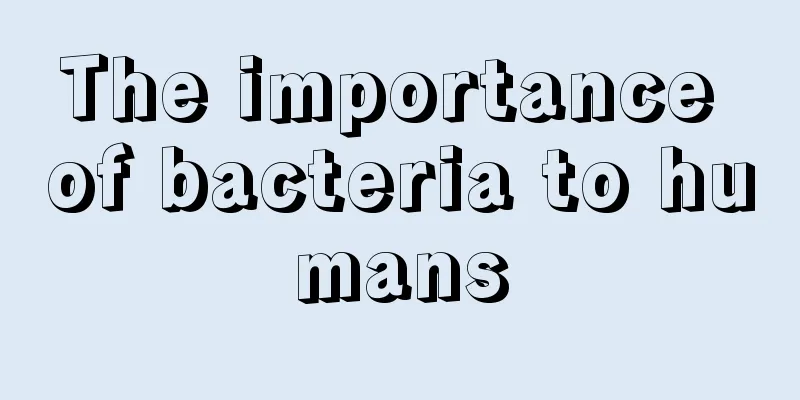The importance of bacteria to humans

|
When talking about fighting bacteria, many people will immediately think of the causes of diseases that may cause people to suffer from diseases. There are many bacteria in the environment we live in. Different bacteria have different functions. Many bacteria play an important role in human health. Humans and bacteria have a directly mutually dependent relationship. The human body needs a lot of bacteria to survive normally, and the human body is also a place where bacteria live. The importance of bacteria to humans 1. Cells are the basic units of human life activities. Humans are composed of tens of millions of cells. Different cells have different functions in the human body. They have independent lives, but they are also responsible for the large cell society of the human body. (It can be compared to each individual in society and society). 2. Bacteria act as decomposers in the ecosystem. They decompose many solidified energies that humans cannot use, such as (animal feces, animal and plant remains, etc.), and convert the carbon in them into carbon dioxide in the atmosphere for plants to photosynthesize, thus promoting the carbon cycle in the ecosystem. Another beneficial function of bacteria is to parasitize our human body. As we all know, bacteria are everywhere, and our human body is constantly stimulated by them, which promotes the development of our immune system. Some bacteria parasitize in our intestines, such as (Escherichia coli), and they can help us break down things we eat but cannot break down by ourselves, such as (cellulose). The benefits of bacteria to the human body
1. Appropriate contact with bacteria is beneficial to enhancing immunity. In fact, it is impossible for people to always live in an environment completely free of bacteria. Instead of always avoiding contact with bacteria, it is better to strengthen one's immunity and not be afraid of bacterial invasion. People's disease resistance, like defense ability, is developed gradually, not overnight. The way we actively develop disease resistance is to get vaccinated, and the passive way is to come into contact with these bacteria and viruses, gradually get to know them, and then we will develop the ability to recognize and resist them. 2. Any bacteria or virus has two sides. For example, the vaccines we get are bacteria or viruses. After entering the human body, these bacteria or viruses produce antibodies to protect the body and prevent the body from being infected by the same bacteria or viruses. That is, the bacteria or viruses injected into the human body increase the body's resistance, which is good for humans. There is also E. coli. With this bacteria, the intestinal mucosa can secrete to keep it moist, and the intestinal wall will not be scratched by feces. This E. coli also plays a protective role. But if there are too many bacteria, viruses or E. coli, it will cause illness. For example, too many E. coli can cause bacterial enteritis, diarrhea, stomach pain, etc., and in severe cases it can even cause intestinal necrosis. So, bacteria and viruses have two sides. |
<<: Can I skip the chickenpox vaccine?
>>: The tendon connecting the tongue to the chin is swollen
Recommend
Nursing of patients with nasopharyngeal carcinoma suffering from massive bleeding after radiotherapy
Radiotherapy is generally the first choice of tre...
Does the patch massager have any side effects?
Nowadays, people who do physical and mental labor...
Can I wash off immediately after making love
For many women, vaginal hygiene is very important...
The consequences of eating the wrong breakfast are terrible. Four fatal mistakes when eating breakfast
1. The earlier the breakfast, the better Many peo...
Sky phobia
There are many types of fears, and different peop...
What are the benefits of stewing duck with an arrow
When we mention duck, the first thing that comes ...
What's the matter with high white blood cell count in urine routine
When something is wrong with the body, we need to...
How to eliminate liquid dark areas
In fact, pregnant women must pay attention to the...
What are the hazards of nuclear leakage to human body
Nuclear energy is a very important energy source ...
What to do if the tooth decay pain makes you unable to sleep
If you were asked to describe your experience of ...
When to use pregnancy test paper
Many people use some common test strips to check ...
Is the red ring snake poisonous?
The red ring snake is also called the red-banded ...
How to solve the problem of wanting to sleep but not being able to sleep?
Sleep is a task that people must complete every d...
What kind of exercise can enhance immunity?
The body's resistance is very important for e...
Reasons why capillaries are prone to rupture
Capillary rupture is very common in daily life. I...









